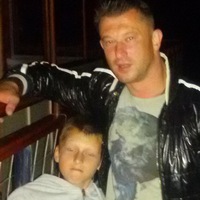
Раскройте скобки, употребляя глаголы в Past Simple или Past Perfect. 1. Tom (to return) from the
cinema at five o'clock. 2. Tom (to return) from the cinema by five o'clock. 3. I (to finish) my homework at seven o'clock. 4. I (to finish) my homework by seven o'clock. 5.He (to think) that he (to lose) the money. 6. Ann (to tell) me that she (to see) an interesting film. 7. When I (to come) home, mother already (to cook) dinner. 8. When father (to return) from work, we already (to do) our homework. 9. When the teacher (to enter) the classroom, the pupils already (to open) their books. 10. Kate (to give) me the book which she (to buy) the day before. 11. Nick (to show) the teacher the picture which he (to draw). 12. The boy (to give) the goats the grass which he (to bring) from the field. 13. Mother (to see) that Nick (not to wash) his hands. 14. The teacher (to understand) that Lena (not to do) her homework. 15. I (to know) that my friend (not yet to come). 16. When I (to wake) up yesterday, father already (to go) to work. 17. Nick (to think) that his father (not yet to come) home. 18. Mary (to tell) us that she (to cook) a good dinner. 19. Yesterday I (to find) the book which I (to lose) in summer. 20. When we (to come) to the station, the train already (to leave). С объяснением, почему так! Ответы можно взять с интернета главное объяснение! Заранее Спасибо!!! 0
0
 0
0
Ответы на вопрос
 Внимание! Ответы на вопросы дают живые люди. Они могут содержать ошибочную информацию, заблуждения, а также ответы могут быть сгенерированы нейросетями. Будьте внимательны. Если вы уверены, что ответ неверный, нажмите кнопку "Пожаловаться" под ответом.
Внимание! Ответы на вопросы дают живые люди. Они могут содержать ошибочную информацию, заблуждения, а также ответы могут быть сгенерированы нейросетями. Будьте внимательны. Если вы уверены, что ответ неверный, нажмите кнопку "Пожаловаться" под ответом.

Ответ: 1 Tom returned from the cinema at five o'clock.( він уже повернувся )
2Tom had returned from the cinema by five o'clock.(він має повернутися до 5 год)
3. I finished my homework at seven o'clock.(теж що й в 1)
4. I had finished my homework by seven o'clock.(теж що й в 2)
5.He thought that he had lost the money.(дія коли він загубив відбувається раніше ніж коли він думав)
6. Ann told me that she had saw an interesting film. ( вона дивилася раніше ніж казала)
7. When I came home, mother already had cooked dinner.(мама приготувала, а потім він прийшов )
8. When father returned from work, we already had done our homework.(вони зробили, а тобі тато повернувся)
9. When the teacher entered the classroom, the pupils already had opened their books.(вони відкрили, а тоді вчитель сказав відкрити)
10. Kate given me the book which she had bought the day before. (спочатку вона купила книжку, а потім віддала її)
11. Nick showed the teacher the picture which he had drawn.( перша дія - намалював, 2-показав)
12. The boy gave) the goats the grass which he had brought from the field.(там де паст перфект дія була перша, де сімпл після цього)
13. Mother saw that Nick hadn't washed his hands. (12)
14. The teacher understood that Lena hadn't done her homework. (12)
15. I (to know) that my friend (not yet to come). (не знаю )
16. When I woke up yesterday, father already had gone to work.(12)
17. Nick thought that his father hadn't come yet home. (12)
18. Mary told us that she had cooked a good dinner. (12)
19. Yesterday I found the book which I had lost in summer.(12)
20. When we came to the station, the train already had left.(12)
Объяснение:
 0
0
 0
0

1. Tom returned from the cinema at five o'clock. - The verb "to return" is used in the past simple tense to describe an action that happened and was completed in the past.
2. Tom had returned from the cinema by five o'clock. - The verb "to return" is used in the past perfect tense to describe an action that happened before another past action or time.
3. I finished my homework at seven o'clock. - The verb "to finish" is used in the past simple tense to describe an action that happened and was completed in the past.
4. I had finished my homework by seven o'clock. - The verb "to finish" is used in the past perfect tense to describe an action that happened before another past action or time.
5. He thought that he had lost the money. - The verb "to think" is used in the past simple tense to describe an action that happened and was completed in the past. - The verb "to lose" is used in the past perfect tense to describe an action that happened before another past action or time.
6. Ann told me that she had seen an interesting film. - The verb "to tell" is used in the past simple tense to describe an action that happened and was completed in the past. - The verb "to see" is used in the past perfect tense to describe an action that happened before another past action or time.
7. When I came home, mother already had cooked dinner. - The verb "to come" is used in the past simple tense to describe an action that happened and was completed in the past. - The verb "to cook" is used in the past perfect tense to describe an action that happened before another past action or time.
8. When father returned from work, we already had done our homework. - The verb "to return" is used in the past simple tense to describe an action that happened and was completed in the past. - The verb "to do" is used in the past perfect tense to describe an action that happened before another past action or time.
9. When the teacher entered the classroom, the pupils already had opened their books. - The verb "to enter" is used in the past simple tense to describe an action that happened and was completed in the past. - The verb "to open" is used in the past perfect tense to describe an action that happened before another past action or time.
10. Kate gave me the book which she had bought the day before. - The verb "to give" is used in the past simple tense to describe an action that happened and was completed in the past. - The verb "to buy" is used in the past perfect tense to describe an action that happened before another past action or time.
11. Nick showed the teacher the picture which he had drawn. - The verb "to show" is used in the past simple tense to describe an action that happened and was completed in the past. - The verb "to draw" is used in the past perfect tense to describe an action that happened before another past action or time.
12. The boy gave the goats the grass which he had brought from the field. - The verb "to give" is used in the past simple tense to describe an action that happened and was completed in the past. - The verb "to bring" is used in the past perfect tense to describe an action that happened before another past action or time.
13. Mother saw that Nick had not washed his hands. - The verb "to see" is used in the past simple tense to describe an action that happened and was completed in the past. - The verb "to wash" is used in the past perfect tense to describe an action that happened before another past action or time.
14. The teacher understood that Lena had not done her homework. - The verb "to understand" is used in the past simple tense to describe an action that happened and was completed in the past. - The verb "to do" is used in the past perfect tense to describe an action that happened before another past action or time.
15. I knew that my friend had not yet come. - The verb "to know" is used in the past simple tense to describe an action that happened and was completed in the past. - The verb "to come" is used in the past perfect tense to describe an action that happened before another past action or time.
16. When I woke up yesterday, father already had gone to work. - The verb "to wake" is used in the past simple tense to describe an action that happened and was completed in the past. - The verb "to go" is used in the past perfect tense to describe an action that happened before another past action or time.
17. Nick thought that his father had not yet come home. - The verb "to think" is used in the past simple tense to describe an action that happened and was completed in the past. - The verb "to come" is used in the past perfect tense to describe an action that happened before another past action or time.
18. Mary told us that she had cooked a good dinner. - The verb "to tell" is used in the past simple tense to describe an action that happened and was completed in the past. - The verb "to cook" is used in the past perfect tense to describe an action that happened before another past action or time.
19. Yesterday I found the book which I had lost in summer. - The verb "to find" is used in the past simple tense to describe an action that happened and was completed in the past. - The verb "to lose" is used in the past perfect tense to describe an action that happened before another past action or time.
20. When we came to the station, the train already had left. - The verb "to come" is used in the past simple tense to describe an action that happened and was completed in the past. - The verb "to leave" is used in the past perfect tense to describe an action that happened before another past action or time.
Please note that the explanations provided are based on the usage of the past simple and past perfect tenses in English grammar.
 0
0
 0
0
Похожие вопросы
Топ вопросов за вчера в категории Английский язык
Последние заданные вопросы в категории Английский язык
-
Математика
-
Литература
-
Алгебра
-
Русский язык
-
Геометрия
-
Английский язык
-
Химия
-
Физика
-
Биология
-
Другие предметы
-
История
-
Обществознание
-
Окружающий мир
-
География
-
Українська мова
-
Информатика
-
Українська література
-
Қазақ тiлi
-
Экономика
-
Музыка
-
Право
-
Беларуская мова
-
Французский язык
-
Немецкий язык
-
МХК
-
ОБЖ
-
Психология
-
Физкультура и спорт
-
Астрономия
-
Кыргыз тили
-
Оʻzbek tili




















